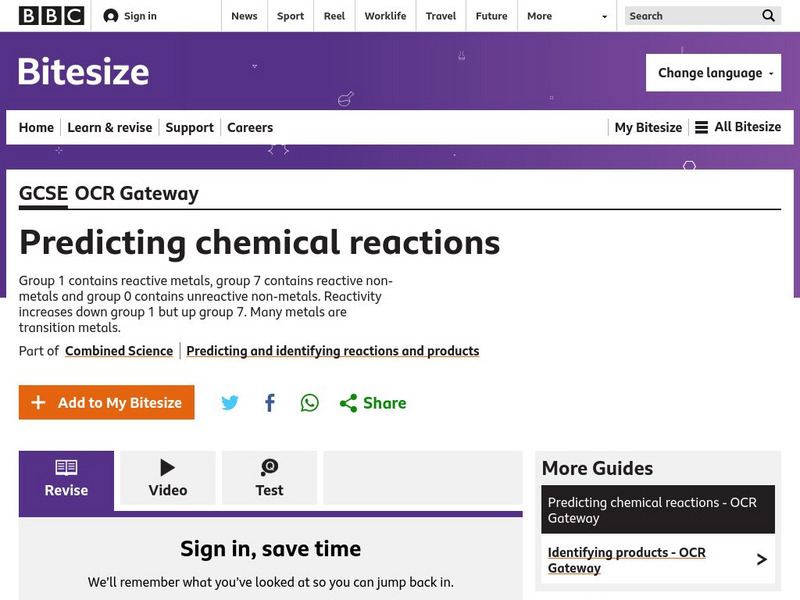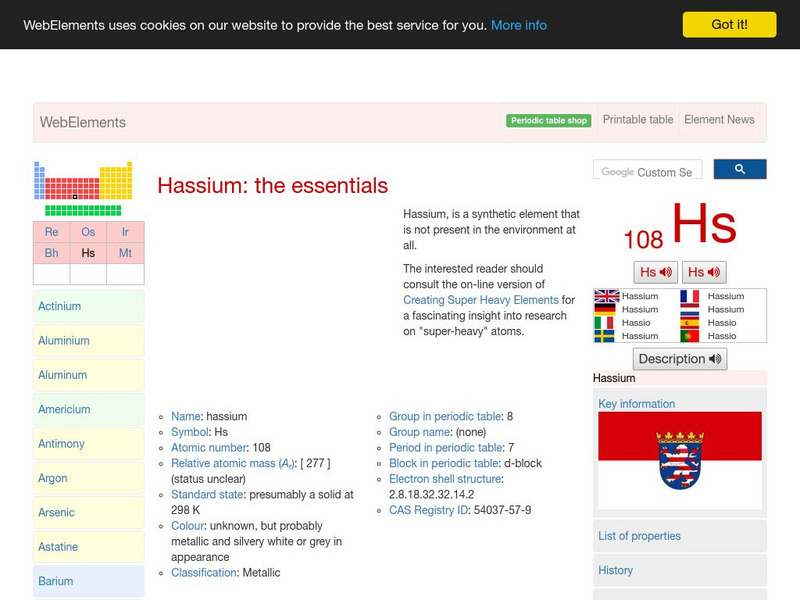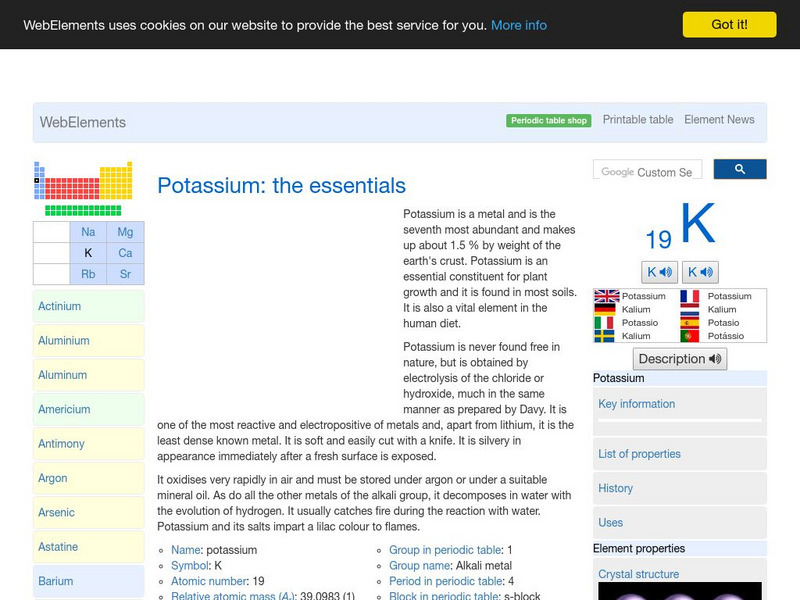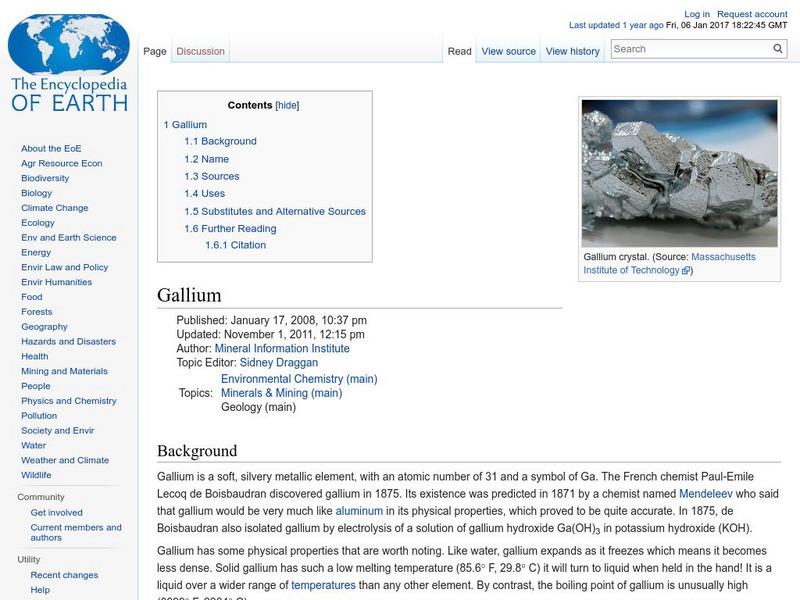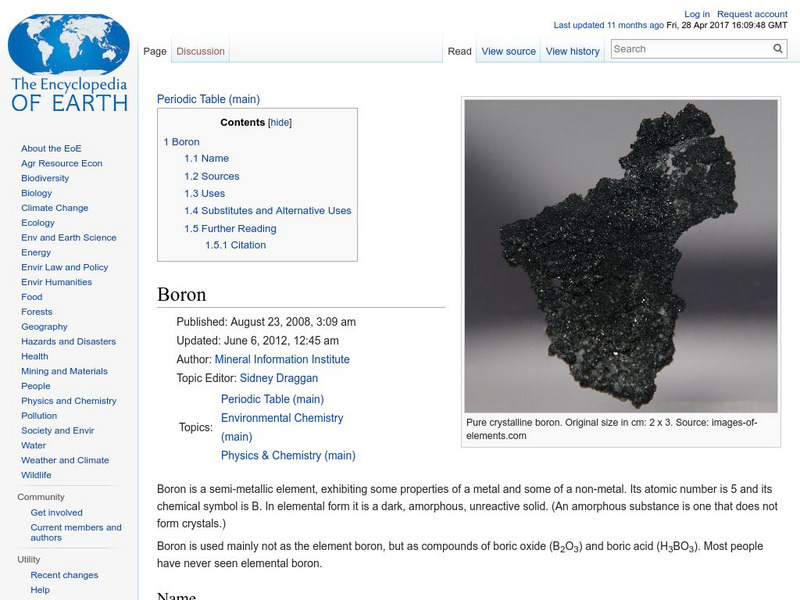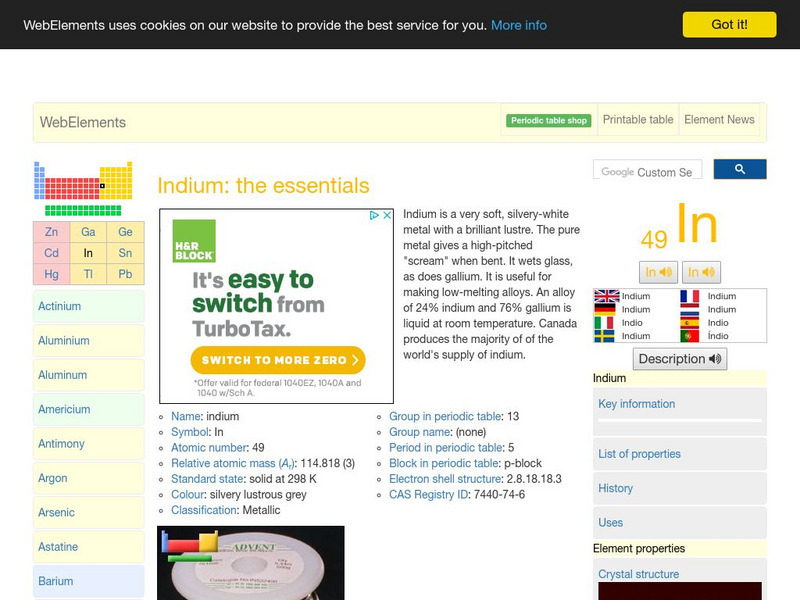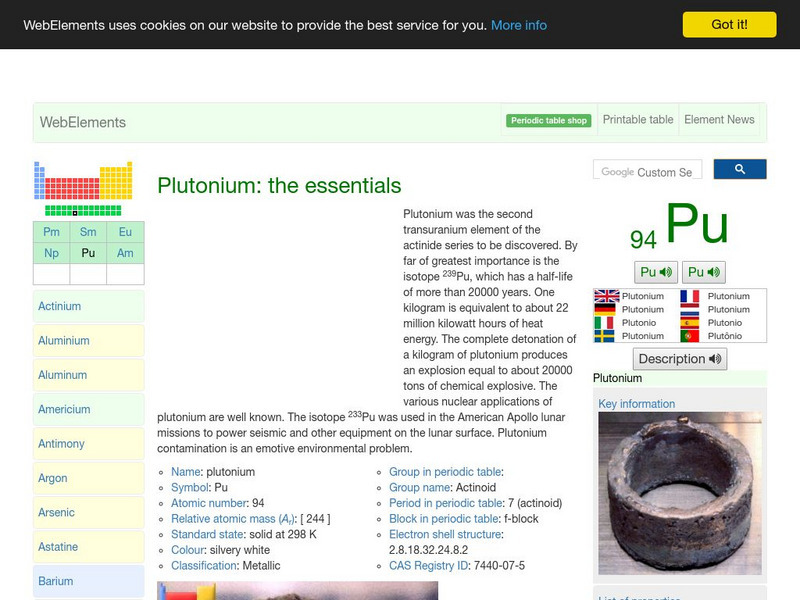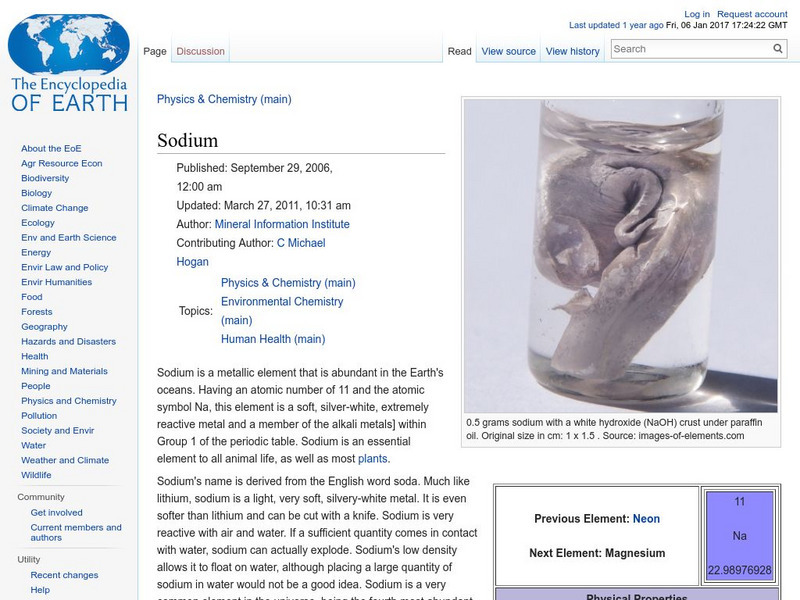BBC
Bbc: Gcse Bitesize: The Periodic Table
Elements in the same group in the periodic table have similar chemical properties. This is because their atoms have the same number of electrons in the highest occupied energy level. Group 1 elements are reactive metals called the alkali...
James Madison University
James Madison University: Mineral Luster
Mineral photos depicting metallic and non-metallic luster. Includes shiny, glassy, and earthy examples.
Science Struck
Science Struck: Halogen Family
Read about the non-metallic elements in the halogen family, what their chemical and physical properties are, their uses, and some interesting facts about them.
BBC
Bbc: Gcse Bitesize: Predicting Chemical Reactions
This lesson focuses on predicting chemical reactions using The Group 1 elements in the Periodic Table are known as the alkali metals. They include lithium, sodium and potassium, which all react vigorously with air and water. It provides...
Web Elements
Web Elements Periodic Table: Hassium
This WebElements site provides a great deal of elemental information. There are audio files demonstrating the correct pronunciation of the element name, pictures showing the electron shells, and information on isotopes, properties and more.
Ducksters
Ducksters: Chemistry for Kids: Elements Transition Metals
Kids learn about the transition metals of the periodic table. Which elements are in this group. Properties, similarities, and other facts.
Other
Neodymium Metal & Powder
Summary of information on the chemical and physical properties of Neodymium. It also includes a table summarizing its properties.
Other
Platinum Metal & Powder
Summary of information on the chemical and physical properties of Platinum. It also includes a table summarizing its properties.
Web Elements
Web Elements Periodic Table: Potassium
This WebElements site provides a great deal of elemental information. There are audio files demonstrating the correct pronunciation of the element name, pictures showing the electron shells, and information on isotopes, properties and more.
Environmental Chemistry
Environmental chemistry.com: Periodic Table Potassium
As the name of this site implies, this is a huge reference site for elemental information. Whether you are looking for properties or isotopes, this site probably has what you need. Images of structure and electron energy level can be...
Environmental Chemistry
Environmental chemistry.com: Periodic Table Vanadium
A thorough a site on vanadium and its properties. Highly recommended.
Encyclopedia of Earth
Encyclopedia of Earth: Rhenium
Information about the metallic element, Rhenium, atomic number 75. Covers its physical and atomic properties, how abundant it is on the Earth, sources, uses, and potential substitutes.
Encyclopedia of Earth
Encyclopedia of Earth: Lithium
Information about the metallic element, Lithium, atomic number 3. Covers its discovery, its physical and atomic properties, how abundant it is on the Earth, sources, uses, potential substitutes, and permissible exposure limits.
Encyclopedia of Earth
Encyclopedia of Earth: Gallium
Information about the metallic element, Gallium, atomic number 31. Covers its discovery, its physical and atomic properties, sources, uses, how abundant it is on the Earth, and permissible exposure limits.
Encyclopedia of Earth
Encyclopedia of Earth: Boron
Information about the semi-metallic element, Boron, atomic number 5. Covers physical and atomic properties, how abundant it is on the Earth, sources, uses, and possible substitutes.
Web Elements
Web Elements Periodic Table: Indium
WebElements offers a very helpful assemblage of information on the basic chemical and physical properties of indium.
Web Elements
Web Elements Periodic Table: Plutonium
This WebElements site provides a great deal of elemental information. There are audio files demonstrating the correct pronunciation of the element name, pictures showing the electron shells, and information on isotopes, properties and more.
Georgia Department of Education
Ga Virtual Learning: Physical Science: The Periodic Table
This learning module allows students to use the organization of the periodic table to understand the element and their properties. By the end of the activity, students will be able to locate metals, nonmetals, and metalloids and the...
Encyclopedia of Earth
Encyclopedia of Earth: Silver
Information about the element, Silver, atomic number 47. Covers physical properties, atomic properties, how abundant it is on the Earth, and details about health-related regulations and effects from exposure to it. Also discusses...
Encyclopedia of Earth
Encyclopedia of Earth: Gold
Information about the element, Gold, atomic number 79. Covers its unique physical properties, its atomic properties, how abundant it is on the Earth, sources, uses, and potential substitutes.
Web Elements
Web Elements Periodic Table: Barium
Basic information and data on the element barium. Useful for students at a variety of levels. Includes examples of chemical reactions, as well as information on the properties of this element. Very helpful site.
Florida-Spectrum Environmental Services
Florida Spectrum: Chemical Fact Sheet: Selenium
Nice detailed synopsis of selenium, its properties and uses.
Encyclopedia of Earth
Encyclopedia of Earth: Uranium
Information about the radioactive element, Uranium, atomic number 92. Describes its history, physical and atomic properties, how abundant it is on the Earth, and permissible exposure limits. Also discusses sources, uses, isotopes,...
Encyclopedia of Earth
Encyclopedia of Earth: Sodium
Information about the element, Sodium, atomic number 11. Covers physical and atomic properties, how abundant it is on the Earth, and human health considerations.





